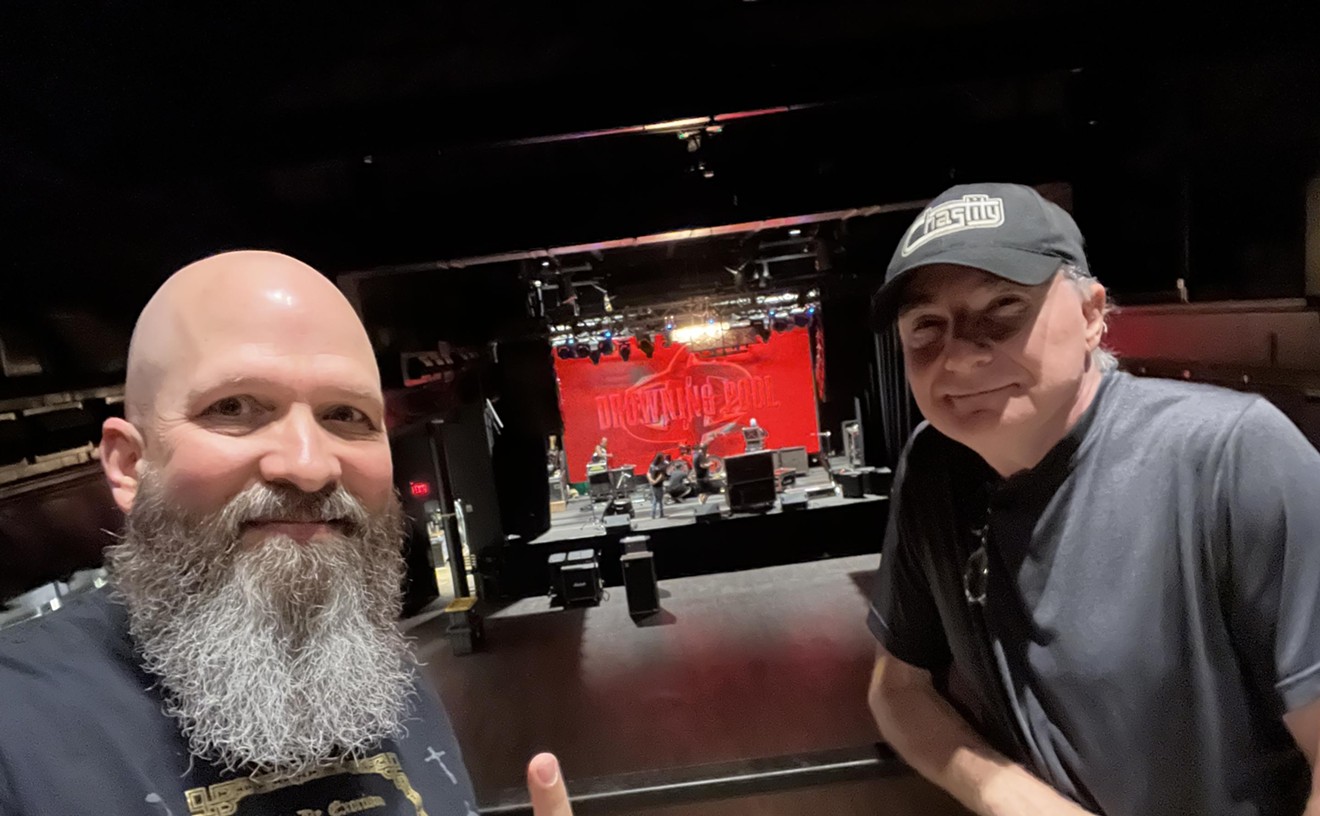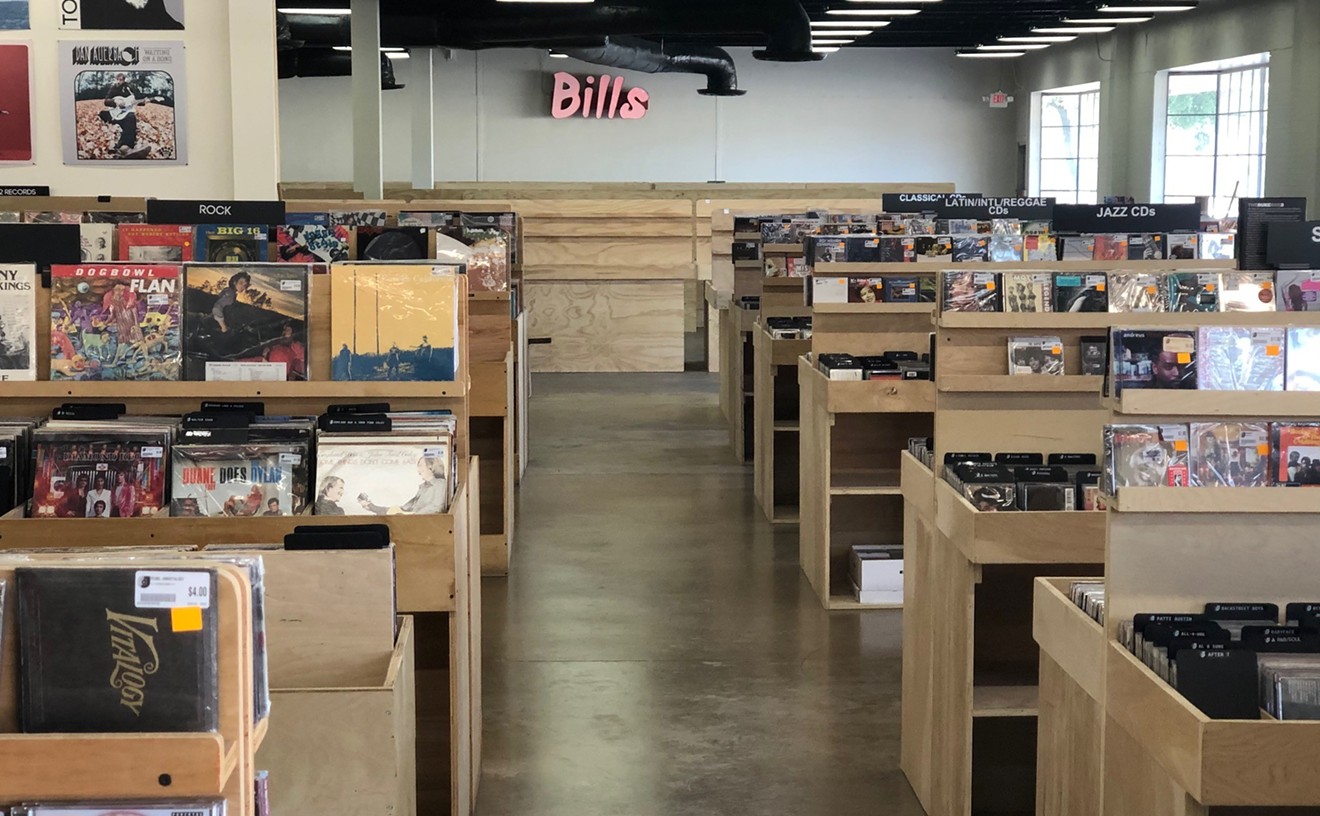But give even a cursory listen to Mayer's new Columbia debut, Room for Squares, and you'll find that that's exactly what he is. It's a good time for guys like that: Post-September 11, everybody's looking for a little reassurance that things are gonna be OK, the pat on the back the upcoming Korn record's probably not gonna deliver or the warm smile conspicuously absent from that Jay-Z/R. Kelly joint. Room for Squares packs more hugs than the new Dave Matthews video, Mayer wondering aloud (in a voice not unlike Matthews') about the little insecurities that riddle his days, while the burnished, surprisingly sophisticated pop-rock supporting him answers all his questions. It's regular-guy music so well-conceived it makes David Gray look forced and Ryan Adams like a bar-hopping fake. Talking on the phone a couple of weeks before his tour hits Dallas, Mayer just confirms the sense of good-natured inevitability his record oozes:
Me: So how'd you get into music?
Mayer: I was always around music, you know? Growing up in Connecticut, there was a piano in the house from the time I was born, and I just gravitated toward it. I started banging out notes and realized that, you know, the more you go to the right, the higher the notes go, and the more you go to the left, the lower the notes go. And then in fourth grade you pick up the violin, then drop that in fifth grade for the brass. And then when I was 13 I started playing guitar, and I haven't dropped it yet. I think that's proof positive that I should be at this, if I started when I was 13 and I'm still playing at 24. You know?
Hard to argue with that, especially when doing so seems like something those high school bullies would've done. Besides, from Mayer's perspective, he's had enough of that already: "'Welcome to the real world,' she said to me/Condescendingly," he sings on "No Such Thing," which opens Room for Squares in a blur of quickly strummed acoustic guitars and agile drums. "Well, I never lived the dreams of the prom kings and the drama queens/I'd like to think the best of me is still hiding up my sleeve."
The Chicago-based indie Aware Records thought that was true when it signed Mayer in the fall of 2000 as the latest in the label's long line of vaguely rootsy artists it would break on college campuses via one of the industry's most respected grassroots promotional infrastructures. Aware had struck gold many times before: Hootie & the Blowfish, Train, Matchbox 20, Dovetail Joint, the Verve Pipe and Better Than Ezra all started with the company and its influential series of compilation CDs, and all soon left for greener pastures, a trend Aware got a leg up on when it inked a unique distribution deal with Columbia in 1997 that allowed bands to record for both labels simultaneously while enjoying the strengths of each. When Aware released Room for Squares last June and the interest around Mayer began to pick up, Columbia exercised its end of the deal and repackaged the record for release a few months later.
Of course, this would be one of those reasons why on paper Mayer is easy to dislike: Hootie? Train? Better Than Ezra? Not exactly top-shelf elbows for rubbing. Still, Mayer easily stands out from the pack, thanks in part to the legitimate skills he picked up from a short stint at Boston's Berklee School of Music and in part to the fact that he doesn't look like the Train dude. Room for Squares isn't adventurous, but it is modest and well-crafted and genuine--which, OK, yes, probably is a nice way of describing Cracked Rear View. But that doesn't mean it doesn't hit a certain spot.
"The story's actually a lot more synthetic than you'd think," Mayer says of his relationship with the label. "I met a great lawyer who was willing to promote me. He sent out my records to labels, and Aware was one of his first ideas. He knew my music well enough to know it was gonna take a smaller label to do it, and he was right. Aware was the label."
Today he doesn't mind Columbia's extra heft behind the project, which is working overtime to raise Mayer's profile in the singer-songwriter scene in which he's landed. Recent sold-out live shows have certainly helped, as should the capacity crowd this week at Gypsy Tea Room. In New York last month college kids choked Manhattan's Irving Plaza with requests for cuts from Room for Squares, which Mayer told the Columbia reps in attendance had already gone gold, referring to the blank CD-Rs file-swapping MP3 lovers use to bootleg albums. Though probably not what the Sony suits had in mind, that kind of word of mouth has worked well to distinguish Mayer's talents, both from the dozens of guitar-strumming fellows wearing their hearts on their sleeves--"Pete and Ryan and me, we're all different," he says of his new buddies. "What connects us is that it's refreshing"--and from the pushy media stars too impatient to wait for good things to happen.
"I think in some ways Dave Matthews and David Gray, those were the right people to look up to in how they were discovered by people," he says. "It's hard to remember now that Dave Matthews was never really forced on anyone; he didn't have a huge radio or video presence. Everyone made a personal choice to get into his stuff, and everyone did it at the same time. The best thing that could happen for me is for two people to hand each other my CD at the same time." He laughs. "Do that 500,000 times and I'll have a platinum record."










